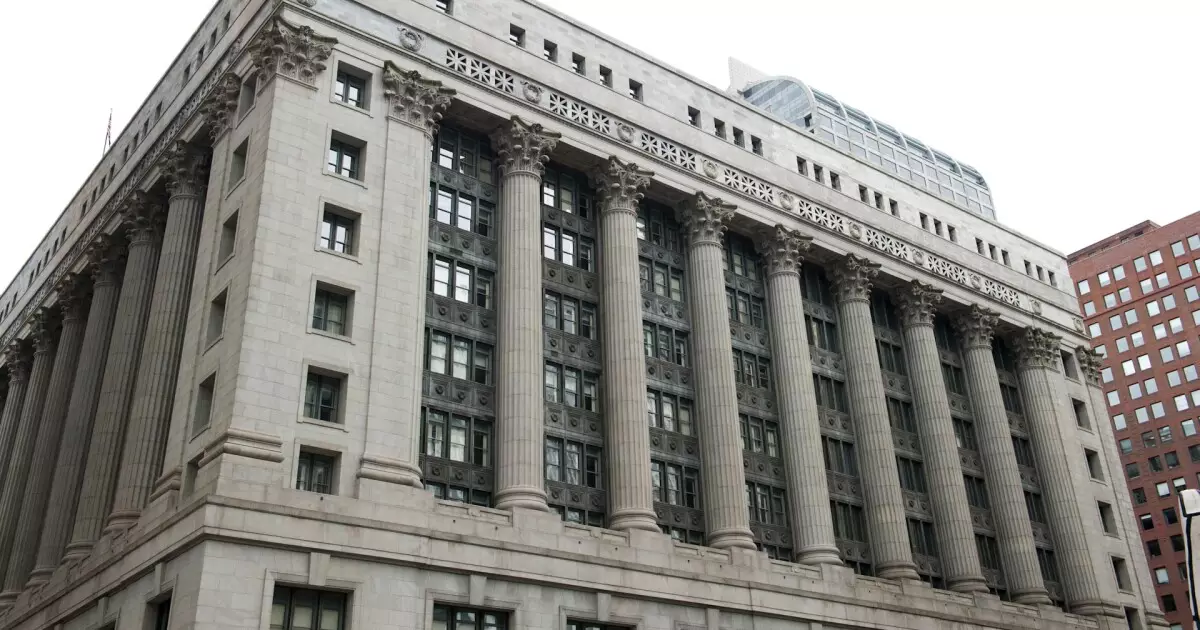Recent developments within the Chicago City Council have sent shockwaves through the city’s fiscal landscape. On a pivotal Thursday afternoon, the council unanimously rejected Mayor Brandon Johnson’s proposed $300 million property tax increase intended to address a staggering $982 million budget shortfall. This pivotal decision came without debate and underscores the tense relationship between the Mayor’s office and the council, as well as the pressing need for a constructive fiscal strategy.
The rejection follows the Kroll Bond Rating Agency’s alarming decision to place the city’s general obligation bond rating on a “Watch Downgrade” status. Such a move signifies heightened scrutiny of Chicago’s fiscal health, putting the pressure squarely on the city’s leadership to navigate a precarious financial landscape. City officials must now scramble for alternative solutions to balance the budget by the mandated date of December 31, 2024. The implications of this rejection extend beyond immediate fiscal concerns, inviting questions about the long-term financial stability of the city.
Howard Cure, of Evercore Wealth Management, remarked upon the apparent contradiction between Mayor Johnson’s previous statements against raising property taxes and his current proposal. The Mayor’s original commitment stirred skepticism among numerous council members and the public alike. This episode raises pertinent questions about the degree of political capital the Mayor can leverage to push through such contentious measures. The crux of the issue lies in whether the City Council, in tandem with the Mayor’s office, can craft a cohesive budget strategy that not only addresses shortfalls but also garners civic support.
While the council’s rejection of the tax increase is a clear refusal of the Mayor’s proposal, it signifies more than simple opposition. It reflects a lack of trust and a significant rift in Chicago’s political climate. The City Council’s decision to reject the tax hike is a defiant stand against what many perceive as ineffective governance. They are obligated to not only respond to constituents’ demands but also to take into consideration the broader implications of the city’s fiscal policies.
The ramifications of the City Council’s decision resonate through the world of municipal finance and bond ratings. The decision by KBRA to place the city’s general obligation bond rating on “Watch” signals possible deterioration in creditworthiness, which can significantly affect Chicago’s borrowing capacity and interest rates. Cure suggests that the focus on property tax increases is a misplaced priority; rather, issues surrounding fixed costs, specifically pension obligations, pose a more pressing threat to the city’s financial standing.
The Mayor’s budget plan incorporates a mix of structural solutions and one-time fixes. However, the significant reliance on non-recurring revenues has led to warnings from rating agencies, emphasizing that sustainable fiscal health requires a wise balance of these elements. Bond raters are keenly aware that one-time solutions cannot mask structural deficits, and this reality underscores the need for the council and the Mayor to develop a long-term fiscal framework that addresses perennial challenges.
With the property tax increase off the table, the quest for alternative revenue streams must now take precedence. The Civic Federation of Chicago outlined several potential solutions that could supplement the city’s revenue without burdening property owners. Long-term strategies proposed include service taxes, a commuter tax, and restructuring the real estate transfer tax. Such changes could redefine Chicago’s fiscal approach and lessen the city’s dependency on property taxes, which are often perceived as a stable yet burdensome source of revenue.
In addition to exploring external revenue options, the Mayor must address internal fiscal discipline. The absence of staff layoffs in the proposed budget raises concerns regarding personnel costs. Moreover, with crucial vacancies in public health and public safety departments, the administration needs to strategically assess staffing levels while ensuring service delivery is not compromised. The struggle to attract talent against competitive private-sector opportunities further complicates this equation.
The Illinois state government’s floundering budget complicates matters for Chicago, raising questions about the city’s reliance on external support. If the state cuts funding to manage its $3 billion deficit, local governments like Chicago could face even greater challenges. The city’s precarious financial circumstances demand that leadership examine the interrelation between city and state budgets. Balancing local needs with state realities will be an arduous task and requires collaboration and innovative thinking among local leaders.
As Chicago navigates these turbulent fiscal waters, the necessity for transparency and productive dialogue between the Mayor and City Council cannot be overstated. Not only must they address existing surplus challenges, but they must also adopt a forward-thinking perspective that positions Chicago for sustainable fiscal growth. Ultimately, addressing Chicago’s budget crisis comprehensively and collaboratively will create a more resilient future for its citizens.

